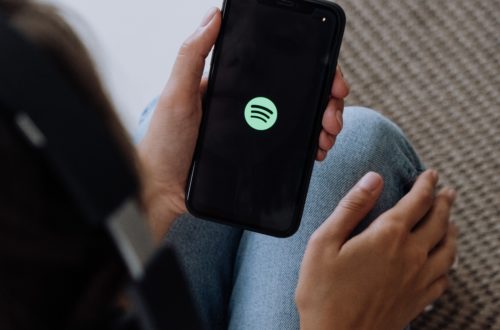
Music-streaming giant Spotify made plenty of positive headlines in December for their annual “Spotify Wrapped” promotion, but they’ve found themselves back in the spotlight this month for more controversial reasons.
Recently, Neil Young led the charge of artists who pulled their musical catalogues from the platform after Spotify allowed provocative podcaster Joe Rogan to keep up episodes of his show that contained misinformation about the COVID-19 pandemic and vaccine. Young, Joni Mitchell, and other musical icons offered Spotify an ultimatum – their music or Rogan’s show. Rogan’s show is the most listened-to podcast on the platform, and – whether or not that played into their decision – remains available on Spotify.
Spotify took a major hit both in the market and in public opinion following the decision. According to Reuters, investors have now begun to build Spotify’s stock price back up, but the social media world is less immediately forgiving. Many of the top hashtags demonstrate this negative feeling, with thousands of mentions of #deletespotify, #spotifydeleted, and #boycottspotify.
Using the parameters of Jan. 23, 2022, through Jan. 31, 2022, with the term “Spotify” combined with Neil Young or Joe Rogan’s names, or both, we harvested more than 620.2K mentions across platforms in the United States. An overwhelming 87.3% of those mentions registered negative sentiment – unsurprising, given that Spotify would alienate a significant portion of its users as well as talent no matter their choice. Despite the high volume of anti-Spotify hashtags, trends such as #thanksjoerogan and #thanksspotify also contribute more than 5.6K mentions apiece and demonstrate public sentiment toward both positions.
The news began to gain traction on Jan. 24, reaching a fever pitch on Jan. 29 with more than 135.1K mentions in that single day! Top terms of discussion as well as a deeper analysis of content indicate social users were concerned about the implications of banning content. The term “censorship” appeared frequently by those who were pleased with Spotify’s decision, while “misinformation” and “anti-vaxxer” appeared frequently in the other camp.
This entire incident highlights the pitfalls companies must plan for and try to avoid in the modern world with social media, where reputation is just as important as who’s streaming on your platform or what wider repercussions your decisions may have. While Rogan responded (if not quite apologized) and Spotify declared they would offer “content warnings,” ethical implications abound on all sides as social media users continue to debate. Meanwhile, Spotify itself has offered no statements or even mentions of the decision on its own social media pages.
Author: Kayleigh Jackson
